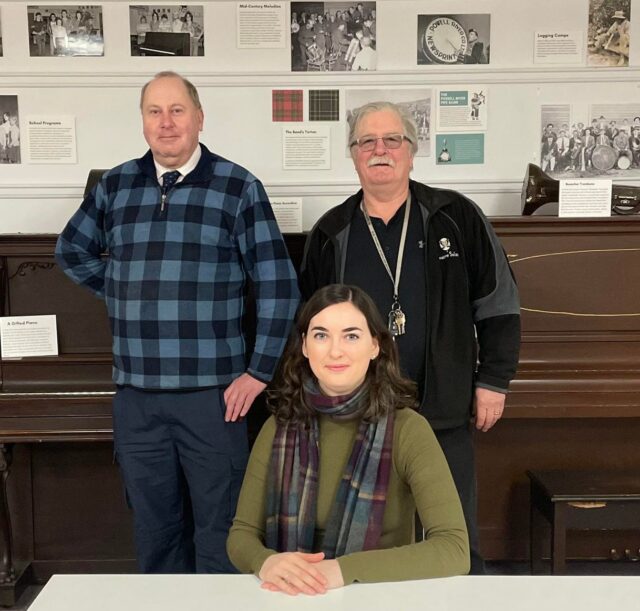- Heritage BC Awards
- Conference
- Heritage Week
- Cultural Maps
- Mapping Heritage Resources
- Submerged Heritage Resources Map
- Columbia Basin Region Historic Places Map
- Francophone Historic Places Map
- Chinese Canadian Historic Places Map
- Japanese Canadian Historic Places Map
- South Asian Canadian Historic Places Map
- War Monuments and Memorials Map
- Industrial Heritage Cultural Map
- Webinars
Joint Conference Day 3 : May 18th
Redress
Redress is defined as “to set something right.” From our collections, to the stories we tell, to the very lands we occupy, arts, culture, and heritage organizations have a history of contributing to injustice and now have a responsibility to set things right. Join colleagues on the final day of the conference and explore actions we can take today as organizations and individuals to build on truth and reconciliation and redress injustice.
Panel – Decolonization in Practice
10:30 – 11:45AM
Highlighting examples of meaningful steps being taken by institutions big and small. The panelists will talk about the new exhibit Standing in the Gap by Cecil Dawson at Museum at Campbell River, the SISȻENEM title transfer to W̱SÁNEĆ Leadership Council, and the Burnaby Heritage Policy review.
Key Themes in Heritage: Decolonizing heritage policy, intangible cultural heritage, natural heritage
Moderated By:
Miranda Jimmy
Miranda Jimmy is a passionate Edmontonian and member of Thunderchild First Nation. She is a community connector and fierce defender of truth. Miranda is committed to the spirit and intent of the Treaty relationship and finds ways each day to demonstrate to others what this looks like.
Miranda’s professional life has focused on contributing to her community in a variety of ways. She has training in arts and cultural management, conflict resolution and negotiation, and communications. She has made a career in the arts and heritage sector, working with many different non-profit organizations, nations, governments, and private businesses. Currently, Miranda works remotely for the National Trust for Canada part time along with managing a variety of other heritage projects and contracts.
Most of the time, Miranda can be found online sharing her thoughts and amplifying the experiences of Indigenous Peoples on Twitter @TheMirandaJimmy and on her blog at MirandaJimmy.com.
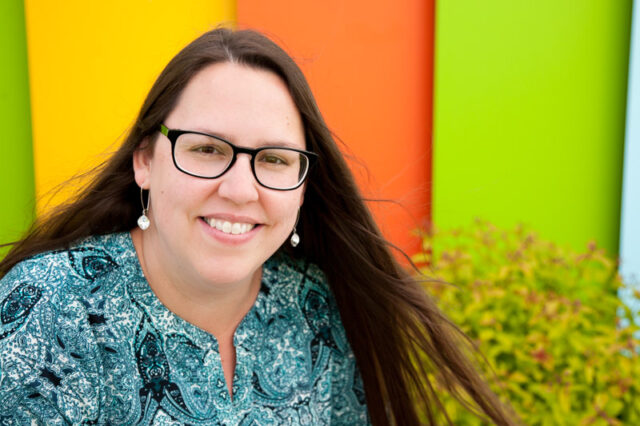
Cecil Dawson
Hereditary Chief ; Master Carver and Master Painter, Ninalk’inuxw
Cecil Dawson’s early years were spent in Kingcome Inlet with his paternal Grandmother Louisa Dawson (née Coon) and fishing with his father from an early age. He spoke only Kwak̓wala until he was nearly school aged when his family moved to Campbell River. Weekends were spent in Alert Bay with his maternal Grandparents, James and Mary Dick, learning about his family history, their community connections, dances, songs and regalia, and other important cultural practices such as smoking fish, and carving cedar.
After graduating from High School he enrolled in the Kootenay School of Art in Nelson, BC. Upon completion of the program, he began carving with his grandfather’s knives and has never looked back.
Today, Cecil is a Hereditary Chief, G̱ixkastallasame-gi, taking up his father’s position at a Potlatch in 2015. He describes himself as a master painter who also carves. He has worked over many years to uplift his family, making regalia, and continuing to potlatch, his most recent was held in Alert Bay in August 2019.
Find Cecil on Instagram.
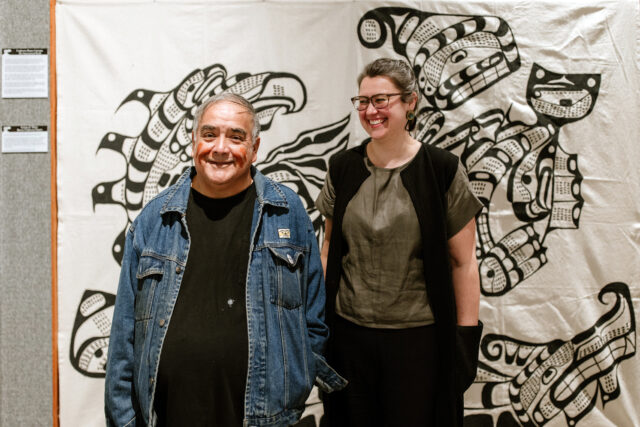
Beth Boyce
Curator, Museum at Campbell River
Beth Boyce is a third generation Canadian, her family immigrated to the west coast from Ireland, Scotland and Guernsey. Growing up on the coast, she split her time between parents in Nanaimo and Prince Rupert. Beth completed a Bachelor of Arts in History from the University of Victoria, followed by a Master’s Degree in Art Conservation from Queen’s University, where she specialized in the treatment of archaeological waterlogged basketry and ethnographic artifacts. She has been privileged to work as the Curator for the Museum at Campbell River since 2013.
Find the Museum on Facebook and Instagram.
You can also email her.

Cathy Armstrong
Executive Director, The Land Conservancy
Cathy Armstrong has been Executive Director of TLC The Land Conservancy of BC (TLC) since 2015.
TLC recently entered into a partnership agreement with W̱SÁNEĆ Leadership Council that will transfer title of SISȻENEM, a 9.67-acre island off the east coast of Sidney Island, from the charitable land trust to the W̱SÁNEĆ Leadership Council as an act of reconciliation. The transfer will be historically significant as the first of its kind between a land trust and an Indigenous community in Canada. TLC will work together with the W̱SÁNEĆ Leadership Council to draft and register a conservation covenant and develop a co-management plan that will incorporate Indigenous land management principles to provide access for cultural, education, research, and monitoring purposes.
SISȻENEM (pronounced Cease-kwa-nem) is an important cultural place where W̱SÁNEĆ people would fish for cod, collect traditional medicines, and harvest camas.
Find The Land Conservancy on Facebook, Instagram and Twitter.
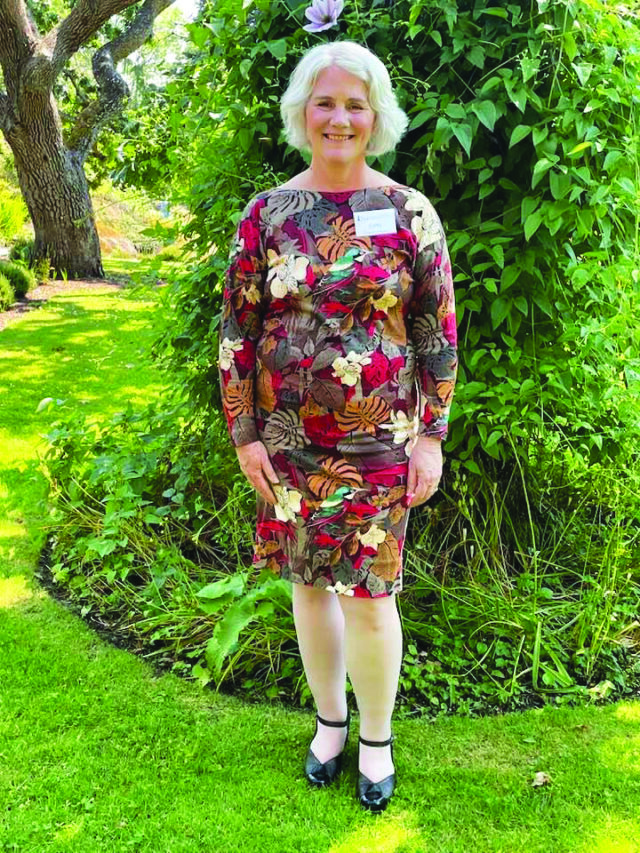
Kamala Jasmine Todd
Director, Indigenous City Media
Kamala Todd is a Métis-Cree mother, community planner, curator, and filmmaker born and raised in the beautiful lands of the hən̓q̓əmin̓əm̓ and Skwxwú7mesh-speaking people (aka Vancouver). She is adjunct professor at SFU Urban Studies and UBC SCARP. She was the City of Vancouver’s first Indigenous Arts and Culture Planner. Her film credits include Welcome to Our Homelands, Cedar and Bamboo, RELAW: Living Indigenous Laws, and Indigenous Plant Diva. She advises local governments and other organizations on decolonizing with a focus on planning, heritage, public art, education, and other areas of systemic colonialism.
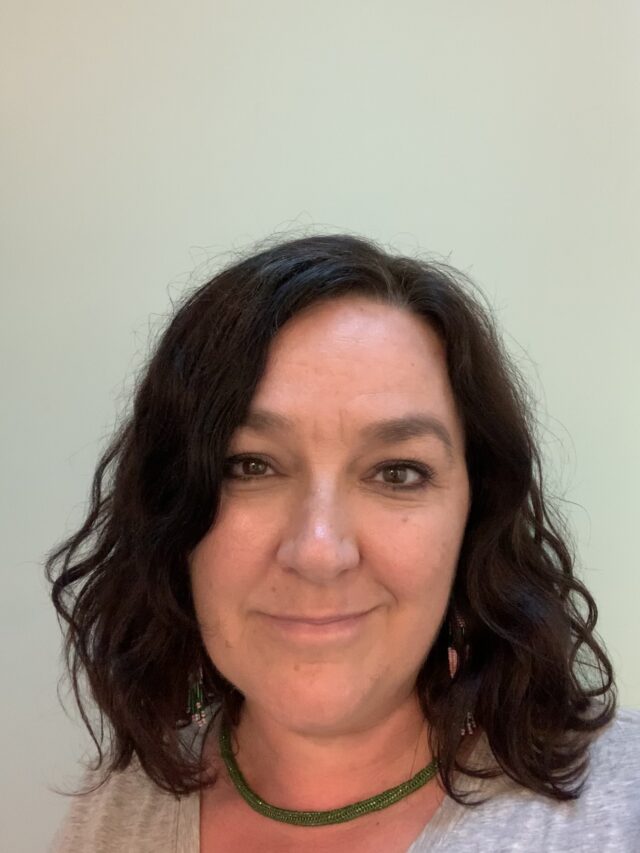
Anchor Speaker – Truth Telling as Precursor to Reconciliation
12:00 – 1:15 PM
In this session, Ry Moran, Associate University Librarian – Reconciliation at the University of Victoria – will explore the vital importance of truth telling in our collective work of reconciliation, healing and peace making. Central in this discussion will be the importance of known and unknown histories in these efforts.
Ry Moran
Canada’s inaugural Associate University Librarian – Reconciliation, University of Victoria.
Ry’s role within UVic Libraries’ focuses on building and sustaining relationships to introduce Indigenous approaches and knowledge into the daily work of the Libraries and more broadly across the campus community. In so doing, Ry plays an active role in advancing UVic’s strategic goal of being a globally recognized leader in areas of reconciliation.
Ry came to this position from the National Centre for Truth and Reconciliation (NCTR) hosted by the University of Manitoba. As the founding director, Ry guided the creation of the NCTR from its inception. Along the way, Ry contributed to major national initiatives such as the creation of the National Student Memorial Register, designation of multiple residential schools as national historical sites, development and launch of the Indigenous Peoples Atlas of Canada, and a major educational broadcast which reached over three million Canadians.
Prior to the NCTR, Ry served with the Truth and Reconciliation Commission of Canada (TRC). On the TRC’s behalf, he facilitated the gathering of nearly 7,000 video/audio-recorded statements of former residential school students and millions of pages archival records.
Ry’s life-long passion for the arts and music continues to be an important part of his life as he continues to write and produce original music.
Ry is a distinguished alumnus of the University of Victoria and was awarded a Meritorious Service Cross by the Governor General. Ry is a proud member of the Red River Métis.
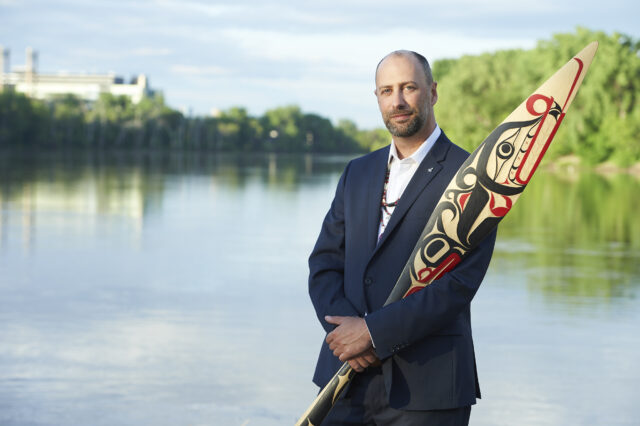
Roundtable – What’s in a Name?
1:30PM – 3:00PM
This roundtable brings together a number of perspectives to discuss these changes. Featuring speakers who are sat at the table of these discussions, the roundtable will provide insights on what the key considerations are during the policy discussions, the impacts of these policies, and how settler-led organizations can support these changes in their communities.
Key Themes in Heritage: Naming policies, natural heritage, intangible cultural heritage, indigenous cultural heritage, sites with diverse heritage and history
Moderated By:
Julia Hulbert
Arts & Culture Planner II, Vancouver Park Board
Julia Hulbert is an Arts & Culture Planner with the Vancouver Park Board’s Decolonization, Arts & Culture team at the City of Vancouver. Julia oversees the Park Board’s public art, monuments and memorials program and is currently working with Kamala Todd to develop a new park naming policy and City-wide Commemoration Framework. Her policy and academic interests include decolonization, heritage and commemoration. Julia’s graduate thesis analyzed a municipal heritage program’s response to the Truth & Reconciliation Commission Calls to Actions. Julia served two terms on the City of Vancouver’s Heritage Commission and the Vancouver School Board’s Heritage Advisory Subcommittee. Prior to joining the Park Board, Julia was part of the award-winning consultant team that produced the Create Victoria: Arts & Culture Master Plan (2018) and Maple Ridge’s Cultural Plan Update (2019).
Find Julia online at @jadhulbert.
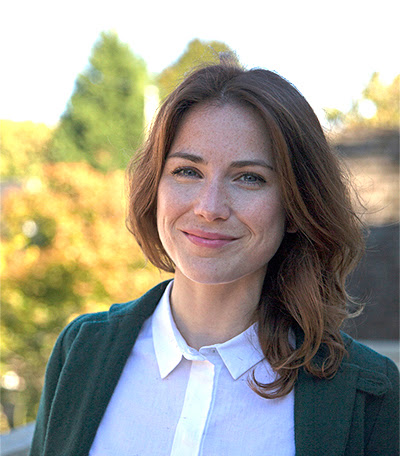
Geneviève Casault
Manager, Heritage Programs and Services, Ministry of Tourism, Arts, Culture & Sport
Originally from Québec, Geneviève moved to Victoria with her husband 10 years ago after living and studying across Canada and Europe. In her downtime, you may find her running along the ocean, spending time in local bookstores, cooking a delicious meal for friends, or enjoying a craft beer served at a local pub near you.
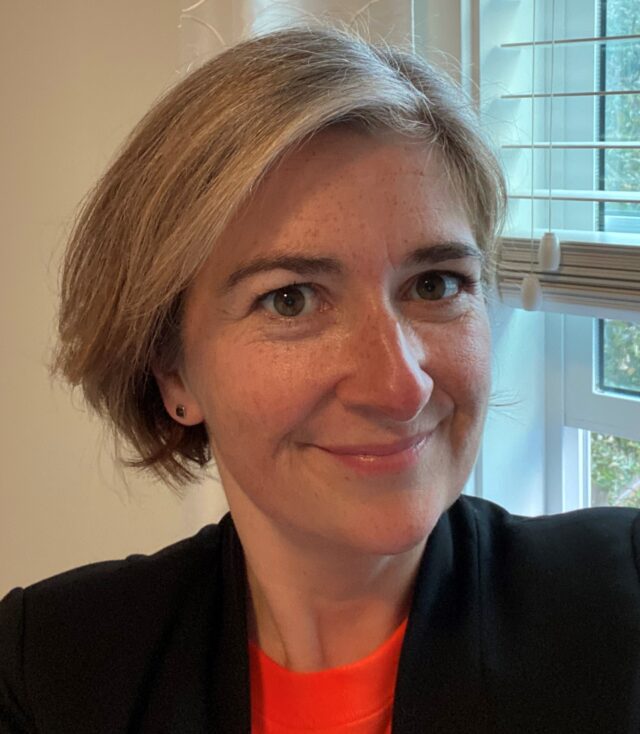
Carla Jack
Senior Toponymist, Natural Resources Canada
Carla Jack is a member of Penelakut Tribe currently living in Lekwungen Peoples territory (Esquimalt). Passionate about languages, mapping, layers of history on the land and communicating heritage values, Carla delighted to find a career in place naming which brings all those interests (and more) together.
As the Provincial Toponymist in the BC Geographical Names Office, Carla enjoyed many years of learning about all areas of the province through its place names, as well as working in partnership with Indigenous governments and communities to restore Indigenous place names to official government maps. Now the Senior Toponymist in the Canada Centre for Mapping and Earth Observation, part of Natural Resources Canada, she currently focusses on place naming at the national and international level by working with the Geographical Names Board of Canada and the United Nations Group of Experts on Geographical Names.
Outside of work, you can find Carla in her garden year-round, growing as many veggies as possible with the ‘help’ of her feisty cat, or wandering the many parks and beaches in southern Vancouver Island with her husband and their doggie-nephew.
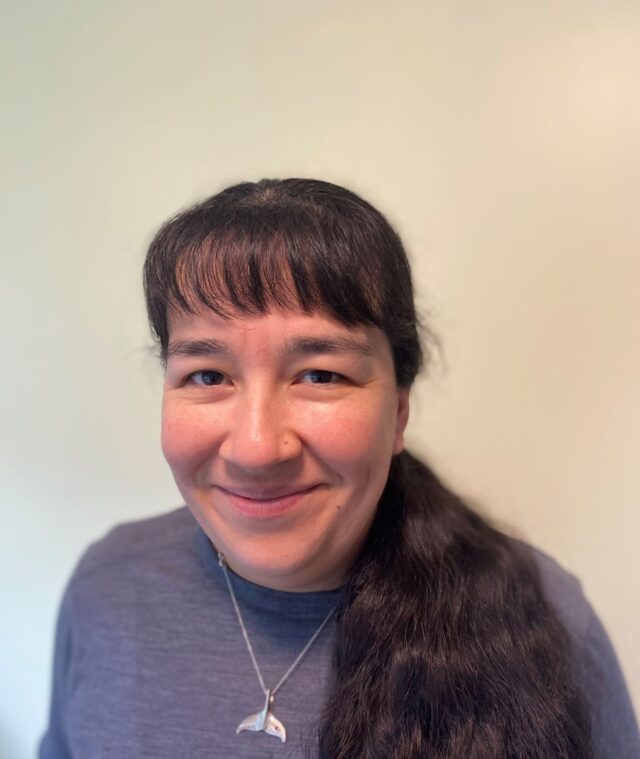
Gaad Gas Raven Ryland
Communications Executive Assistant, Council of the Haida Nation
Gaad Gas Raven Ryland is from the Yaahguulaans Raven Clan from Gaw Tlagée Old Massett and is currently living in HlGaagilda Skidegate. She is a Haida language learner, weaver and currently works for the Council of the Haida Nation as the Communications Executive Assistant. Under the Communications Program, Gaad Gas oversees the Culture & Language files which includes the Place Name Restoration project and communicating with the Skidegate Haida Immersion Program and Xaad Kíl Née to ensure proper language use and spelling. On January 7, 2022, CHN in collaboration with the BC Geographical Names Board officially restored 12 Haida place names back to Haida Gwaii.
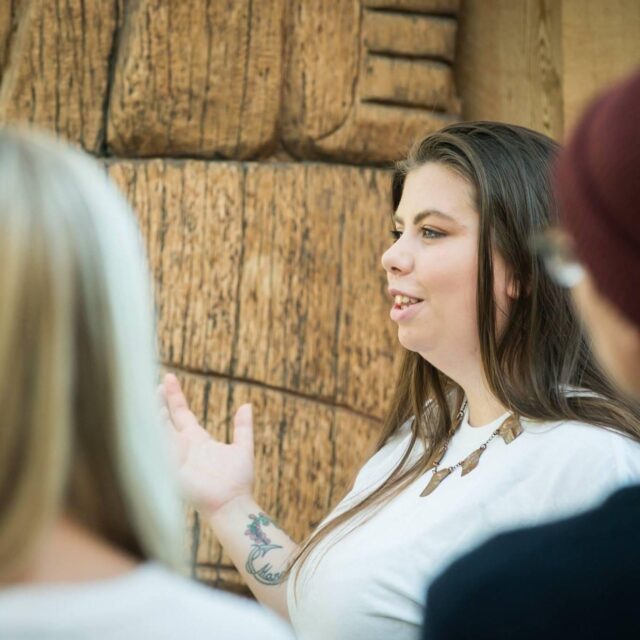
Spencer Lindsay
Reconciliation Planner, Vancouver Park Board
Spencer is a Queer non-binary mixed Métis-Cree planner, advisor and consultant who lives on the unceded ancestral territories of the xʷməθkʷəy̓əm, Sḵwx̱wú7mesh and səlilwətaɬ peoples. As a student Spencer co-led UBC’s first building naming project in collaboration with xʷməθkʷəy̓əm in their hən̓q̓əmin̓əm̓ language. Later, as the City of Vancouver’s Indigenous Engagement Specialist, they coordinated a quad-lateral process to name two prominent downtown plazas. Spencer current works as the Reconciliation Planner for the Vancouver Park Board, where their primary project is a first-of-its kind Colonial Audit of the organization.
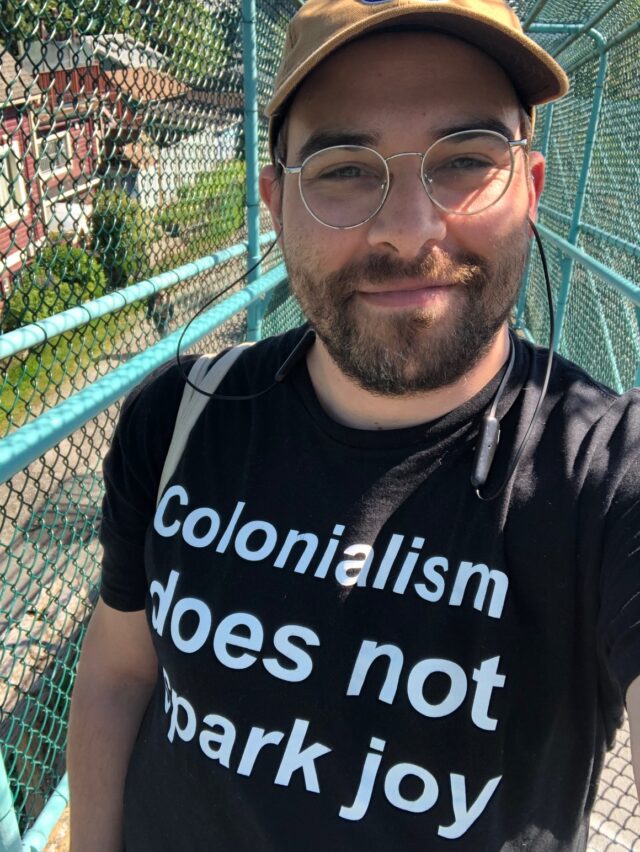
qathet Museum and Archives Society / Powell River Museum
Bill, William, and Joëlle, are representing the newly re-named qathet Museum and Archives Society (formerly known as the Powell River Historical Museum and Archives Association), located in the coastal community of Powell River. Bill Vernon is President of the Board of Directors of the qathet Museum and Archives Society, William Adams is the Executive Director, and Joëlle Sevigny is the Programs and Education Manager.
